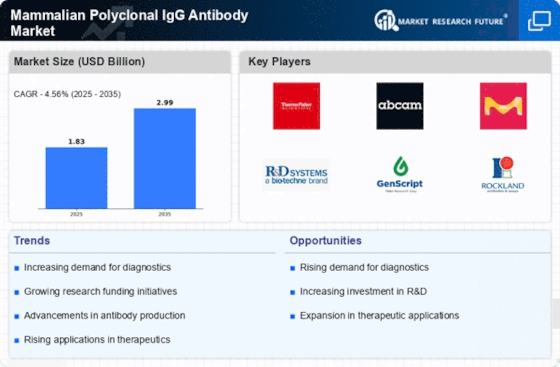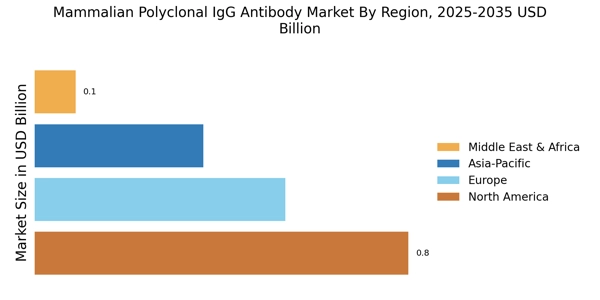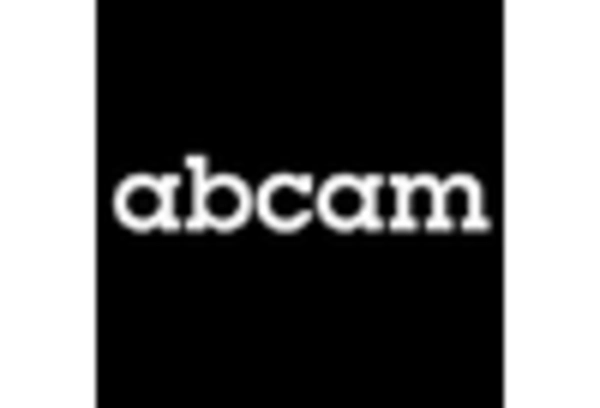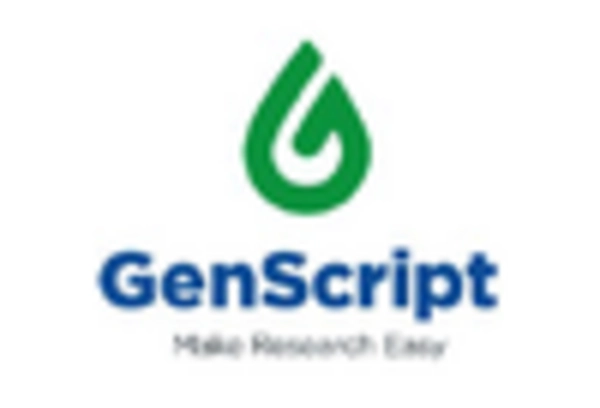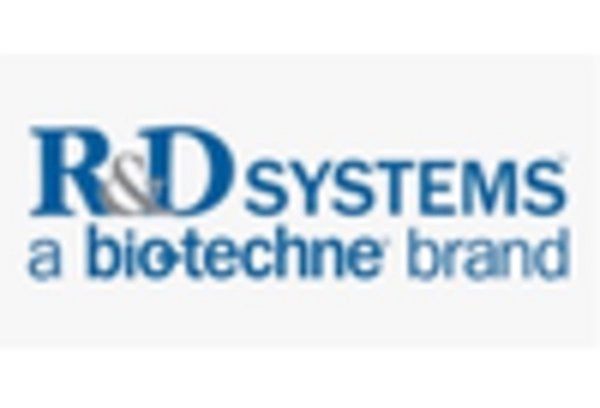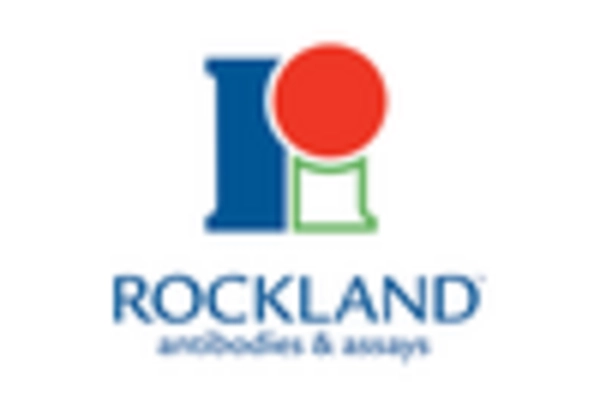Increasing Research Activities
The Mammalian Polyclonal IgG Antibody Market is experiencing a surge in research activities across various fields, including immunology, oncology, and infectious diseases. This uptick is largely driven by the need for innovative therapeutic solutions and diagnostic tools. Research institutions and pharmaceutical companies are increasingly utilizing mammalian polyclonal IgG antibodies for their ability to recognize multiple epitopes, which enhances their utility in complex biological systems. According to recent data, the investment in life sciences research has seen a steady increase, with funding for antibody-related studies projected to rise significantly. This trend indicates a robust demand for mammalian polyclonal IgG antibodies, as they play a crucial role in advancing scientific knowledge and developing new treatments.
Growing Applications in Therapeutics
The Mammalian Polyclonal IgG Antibody Market is witnessing an expansion in therapeutic applications, particularly in the treatment of autoimmune diseases, cancers, and infectious diseases. The versatility of these antibodies allows for their use in various therapeutic modalities, including monoclonal antibody production and combination therapies. Recent market data suggests that the therapeutic segment is expected to grow at a compound annual growth rate of over 8% in the coming years. This growth is attributed to the increasing prevalence of chronic diseases and the rising demand for effective treatment options. As healthcare providers seek to improve patient outcomes, the reliance on mammalian polyclonal IgG antibodies is likely to intensify, further driving market growth.
Expansion of Biopharmaceutical Sector
The Mammalian Polyclonal IgG Antibody Market is closely linked to the expansion of the biopharmaceutical sector. As biopharmaceutical companies increasingly focus on developing novel therapies, the demand for mammalian polyclonal IgG antibodies is expected to rise. These antibodies are integral to the development of biologics, which are becoming a cornerstone of modern medicine. Market projections suggest that the biopharmaceutical sector will continue to grow, driven by advancements in drug development and an increasing number of biologics entering the market. This expansion is likely to create new opportunities for the mammalian polyclonal IgG antibody market, as these antibodies are essential for both research and therapeutic applications.
Rising Demand for Diagnostic Reagents
The Mammalian Polyclonal IgG Antibody Market is experiencing a notable increase in demand for diagnostic reagents. These antibodies are essential components in various diagnostic assays, including ELISA, Western blotting, and immunohistochemistry. The growing emphasis on early disease detection and personalized medicine is driving the need for reliable diagnostic tools. Recent statistics indicate that the diagnostic segment is projected to account for a significant share of the market, with a growth rate of approximately 7% annually. This trend underscores the critical role that mammalian polyclonal IgG antibodies play in enhancing diagnostic accuracy and facilitating timely medical interventions.
Technological Advancements in Antibody Production
The Mammalian Polyclonal IgG Antibody Market is benefiting from technological advancements in antibody production processes. Innovations such as recombinant DNA technology and hybridoma techniques have enhanced the efficiency and yield of antibody production. These advancements not only reduce production costs but also improve the quality and specificity of the antibodies generated. As a result, researchers and manufacturers are increasingly adopting these technologies to meet the growing demand for high-quality mammalian polyclonal IgG antibodies. Market analysis indicates that the adoption of advanced production technologies is likely to propel the market forward, as it enables the development of more effective diagnostic and therapeutic products.


